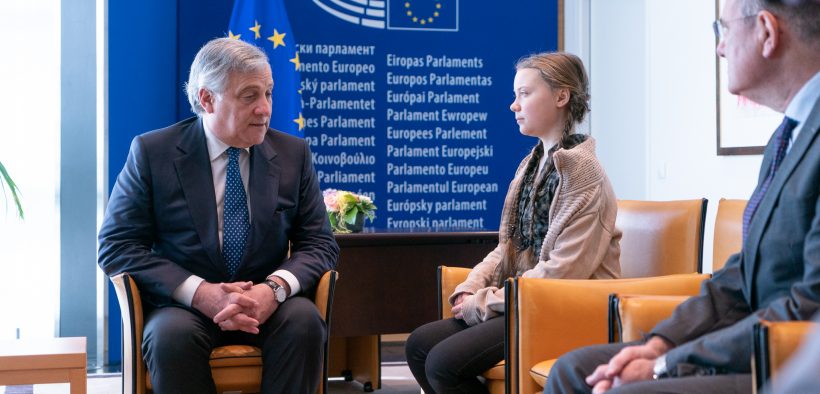Proposed EU Climate Law Criticized by Climate Activists

“When your house is on fire, you don’t wait a few more years to start putting it out. And yet this is what the Commission is proposing today.”
The European Union proposed a law on Wednesday to legally require the Union to become climate neutral by 2050. Leaders from all countries except Poland agreed to the outline of the deal.
Carbon neutrality is central to the European Green Deal according to EU Commission President Ursula von der Leyen.
However, the proposed law has drawn criticism from climate activists, experts, and member countries within the EU.
A dozen EU member states called on officials to speed up the process and begin getting into details by the summer instead of waiting until the end of 2020. But officials want more time to get Poland to agree to the bigger picture.
Youth climate activist Greta Thunberg had a harsher critique of the plan while present for the presentation of the law on Wednesday.
While addressing the European Parliament Thunberg said, “this climate law is surrender – because nature doesn’t bargain and you cannot make ”deals” with physics. And we will not allow you to surrender on our future.”
Climate activists were bolstered by climate scientists, including at the Institute for European Environment Policy who claimed the EU should reduce emissions 65% by 2030 to meet the goals of the Paris Agreement.
Action Now?
The biggest criticism from climate activists, scientists and policymakers is the persistent lack of urgency when addressing climate change.
While the EU has set out goals for 2050, the mechanism to meet the 2030 goals of the Paris Agreement is much less detailed.
“This year, what is really on the table is 2030 … and this target is not included in this review mechanism,” Climate Action Network policy coordinator Klaus Roehrig told Reuters.
EU Commission President von der Leyen was on a charm offensive, and she has branded the climate deal as her hallmark legislation early in her tenure. The new Commission President has called the EU’s Green Deal “Europe’s man on the moon moment.”
The deal would be a first of its kind to set an entire continent on the path to climate neutrality.
However, there is fear that while the EU is talking ambitiously now, the final result at a diplomatic meeting in Glasgow at the end of 2020 will be much more watered down.
Additionally, concerned climate activists have argued that the continent’s current emission rate, sustained even for a couple of years, will not allow the EU to reach its climate goals.
Thunberg told the EU climate committee, “when your house is on fire, you don’t wait a few more years to start putting it out. And yet this is what the Commission is proposing today.”
Accountability
Noticeably lacking from the Union’s proposed deal was an outline of how to upgrade 2030 goals, a necessary step to reach climate neutrality by 2050.
Officials only announced their intention to increase the reduction goal from 40% to 50-55% by 2030. Greenpeace added to the criticism and argued even a 55% reduction target was insufficient.
The European Centre for Medium-Range Weather Forecasts, an EU institution, announced in a press release that January was the warmest January ever recorded in Europe.
By angling for a 2050 climate neutrality goal, the European Commission gains the appearance of ambition, but without concrete goals, it is likely to wind up far short. The Commission has been accused of pandering and using buzzwords in place of proposing radical legislation to stem the tide of climate change.
In early February, the EU backed 32 new major gas infrastructure projects, a move seemingly incompatible with their climate goals.
Thunberg left her harshest criticism for last and called the proposed law “empty words”.
The European Union’s next moves ahead of the 2020 United Nations Climate Change Conference in Glasgow this November will shed light on how serious this Commission is on climate change.
















Vested interests in the status quo, especially politicians — the most short-sighted of all people — always cause the world to do too little too late.
The day will come when a loaf of bread is far more valuable than a vault full of gold bars.